Waking up with immune problems messes with more than your body. It can turn even a simple everyday plan into a stressful guessing game. Among the biggest hits is your mental health—and honestly, it doesn’t get talked about enough. People imagine immunodeficiency is all about colds or needing shots, but the reality is a tightrope walk between physical protection and emotional exhaustion.
Understanding Immunodeficiency: What It Really Means for the Mind
Having immunodeficiency isn’t just about being careful during cold and flu season. It’s a constant background stress. You’re always calculating—Did that person wash their hands? Is that cough harmless or a big risk? These decisions aren’t just tiring for the immune system, but also for the mind. Research from the Canadian Immunodeficiency Patient Organization (CIPO) says that over half of people with primary immunodeficiency have experienced depression or anxiety. That’s much higher than the general population.
Why is that? Take the emotional load: You might have to skip weddings, feel guilty about missing a friend’s birthday, or deal with endless questions like “Don’t you just need more vitamins?” Even trusted relationships get tricky, because sometimes you feel like a burden, or like nobody gets what you’re up against. This constant vigilance can make your stress hormones (like cortisol) stay high. And that creates a nasty cycle, since chronic stress actually messes with immunity too. There’s proof from a 2023 study out of McMaster University that high daily stress can lower the effectiveness of immunoglobulin replacement therapies. So, it’s a loop: being sick makes you stressed, stress makes you sicker.
Then there’s the social impact. If you grew up with immune issues, maybe you missed lots of school. That can weaken your confidence or make you feel like an outsider. Later, adult life brings new hurdles: bosses who don’t “get” why you need to avoid sick coworkers, or online dating nightmares when someone ghosts after you share your situation. All this piles on emotional weight. When you pair that with physical fatigue, it’s easy to feel stuck or hopeless. But this isn’t the end of the story—there are ways forward.
Coping Strategies: Everyday Habits That Actually Make a Difference
Coping with immunodeficiency isn’t about toxic positivity or pretending nothing’s wrong. It’s about building reliable, realistic habits that fit your life. Here’s where you can start. Break your day into three basics: body, mind, and connection.
- Sleep: Easier said than done if you’re anxious, but sleep is repairing for immune cells. Set a bedtime routine. No screens for thirty minutes before bed. Try gentle stretches or breathing exercises—headspace or Calm have free tracks that help quiet a racing brain.
- Movement: Some days a walk around the block is all you can muster, and that’s valid. Regular movement (even guided stretching) can help manage depression, based on findings from the University of Alberta. Cardio’s good, but even low-impact yoga or tai chi keeps the body and mind sharp.
- Food: Chronic stress can send you to comfort foods or lead to skipping meals. Build up a handful of go-to, easy meals you actually like—even plain rice with veggies. If you need to supplement vitamins, check with your specialist (don’t fall for the latest supplement fad—some can harm more than help for rare immune types).
For the mind, consider these:
- Time blocks for worry: Give yourself 15 minutes a day to actually worry. Write things down, rant, or panic. Then stop. This can make anxiety feel less huge because you’re controlling when you think about tough stuff.
- Journaling wins and losses: Not just the bad—track the days you manage a walk, finish a book, or just get out of bed. This rewires your brain to notice the ups, not only the downs.
- Boundaries: Practice saying no—sometimes firmly, sometimes kindly. You’re not rude if you put your health first; you’re being responsible.
And for connection:
- Safe socializing: Outdoor meet-ups are gold, especially in our short, glorious Calgary summers. Online gaming, book clubs, or hobby groups can fill gaps when you need to avoid crowds.
- Check-in buddies: Ask a friend or family member to message you daily, even just a quick hello. There’s real power in knowing someone is thinking about you every day.
Little steps matter more than grand plans. Most folks need a combo of tiny tweaks, not one big change.
| Stressor | Coping Tactic |
|---|---|
| Social isolation | Online support groups, outdoor socializing |
| Anxiety about illness | Routines, facts over doomscrolling, therapy if possible |
| Fatigue | Flexible schedules, say no to non-essentials |
| Relationship strain | Open conversations, share reliable resources with others |
| Financial stress | Seek financial aid programs, honest chats with care teams |
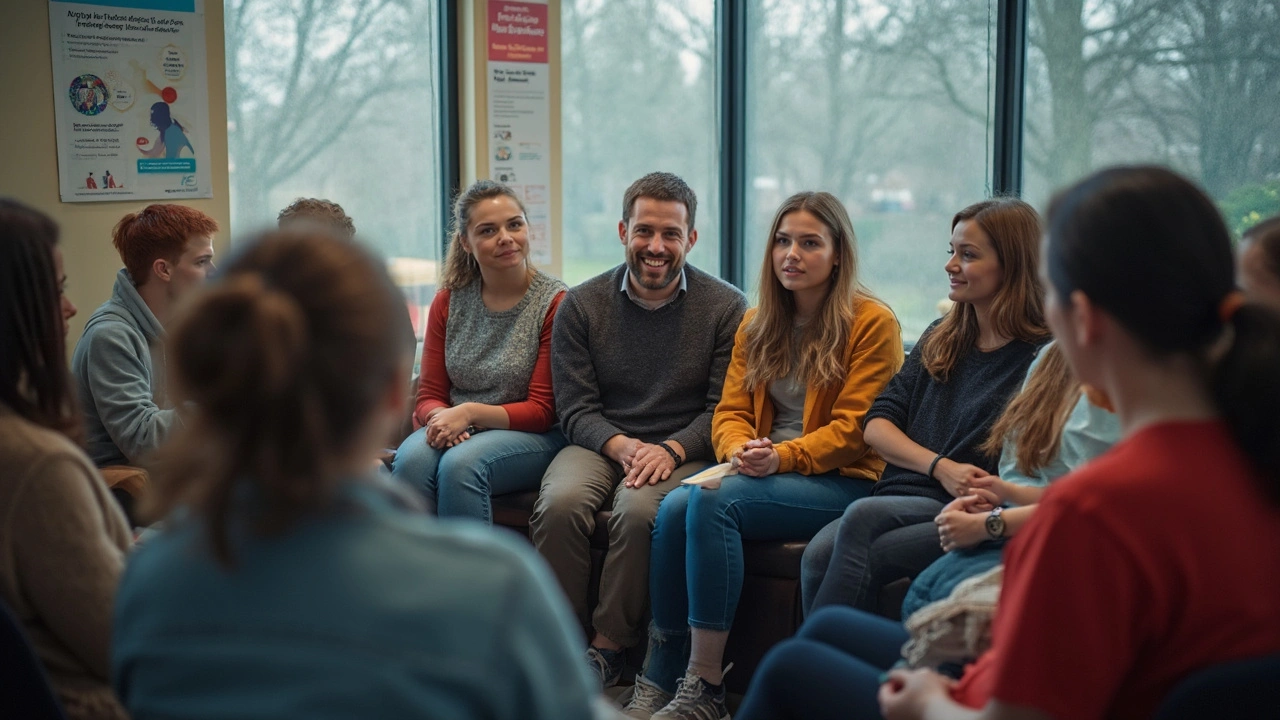
Professional and Peer Support: How to Find Genuine Help
One of the toughest things about living with a rare or chronic health condition is feeling invisible—sometimes even to your own doctors. Not every GP or counselor knows how to handle the random stuff that crops up with immunodeficiency. But there are networks out there. In Canada, CIPO has a peer mentor program (free) where you connect with someone who gets it because they’ve lived it. Some members have had stem cell transplants, others are parents of kids with severe combined immunodeficiency (SCID). It helps to swap notes on what works, especially when the people in your everyday life just can’t relate.
Therapy is a big deal, but finding the right match can take work. Don’t settle for a professional who tries to push toxic positivity or doesn’t believe in “invisible” illnesses. If money’s tight, many clinics now offer sliding scale payments, and some provincial health plans will cover a number of sessions (good to check with Alberta Health). Virtual therapy has opened a lot of doors—apps like Inkblot or MindBeacon make it easier to get help without leaving home, especially on rough health days.
Group support also makes a difference. Calgary actually has a couple of social groups specifically for folks with chronic illnesses, and virtual events increase your odds of finding someone who “gets” the rough parts. Even just knowing you’re not the only one managing sticky hand sanitizer and awkward mask moments helps. A 2022 study from the University of Toronto found that people with chronic physical health issues who participated in regular online support groups reported fewer symptoms of depression after just 8 weeks.
Don’t forget about family and friends, either. Sometimes loved ones want to help but just don’t know how. Print out a simple guide about your condition (the CIPO website has clear PDFs). Share one or two ways they could support you—maybe it’s running errands, maybe it’s not asking about your health all the time. Everyone’s different. Boundaries and routines go a long way here, too.
Building a Personal Toolkit for Rough Days and Long Hauls
When journaling and talking aren’t enough, you’ll need a toolkit of other strategies. Start by making a “bad day plan”—it can be as simple as a note on your fridge. Include emergency contacts, a backup set of clean clothes ready to go, comfort food that soothes your gut, and a playlist that helps you cope. It’s less about being dramatic, more about feeling prepared.
On good days, try scheduling a “future self” favor: Prep days when you have more energy can make a difference. Freeze homemade soup in small containers, or put out a fresh stack of masks by the door. Self-kindness means helping your tomorrow-self, not just this moment’s self.
Sometimes technology gives you a hand—there are apps that track mood or symptoms (like Bearable or Moodpath). They can catch spirals early and give you data to show doctors, making medical appointments feel less scattered. Even basic phone alarms for meds take some mental load off.
If you’re feeling alone, look up local or virtual events, even outside the chronic illness space. Trivia nights, movie watch parties, or charity walks can be a break from thinking about sickness 24/7. Finding hobbies you love is legit medicine—lots of Canadians with immunodeficiency get into baking, photography, or gardening (even container tomatoes on the balcony). Completing something unrelated to your diagnosis builds up your sense of identity outside of “the sick person.”
Heavy emotions come and go. Loss, hope, anger, boredom—it’s all part of the package. Allow yourself to feel them, not judge them. Mental health with immunodeficiency is a marathon. Take breaks, ask for help, and celebrate every bit of progress, even if it looks small from the outside.
Remember: You are more than your diagnosis. The tough days matter, but so do the tiny wins—the quiet mornings, the friendly text, the first spring day you step outside without fear. You aren’t alone in this. There’s a whole community out here, ready to share tips, make you laugh at the weird bits, and remind you that life, even when it’s unpredictable, can hold a lot of good.


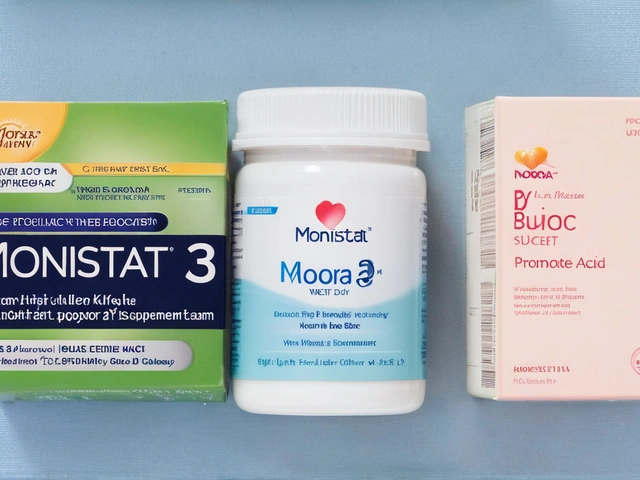
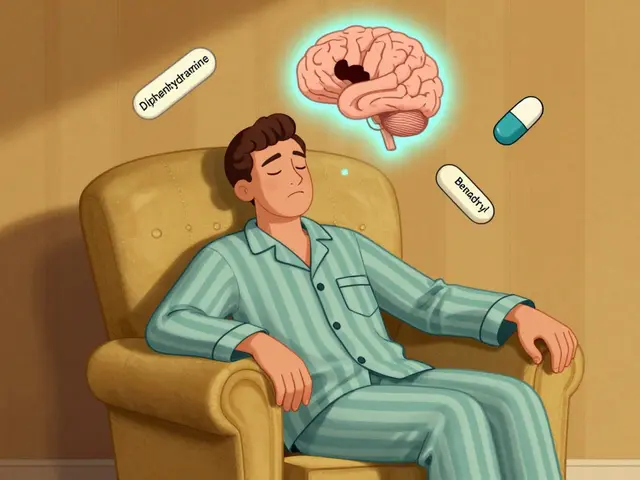

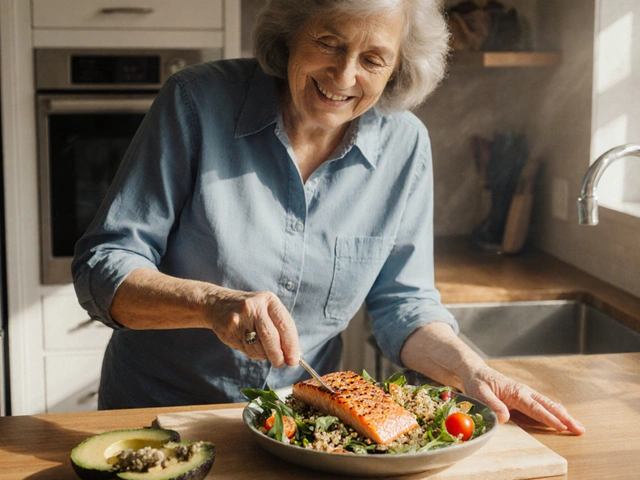
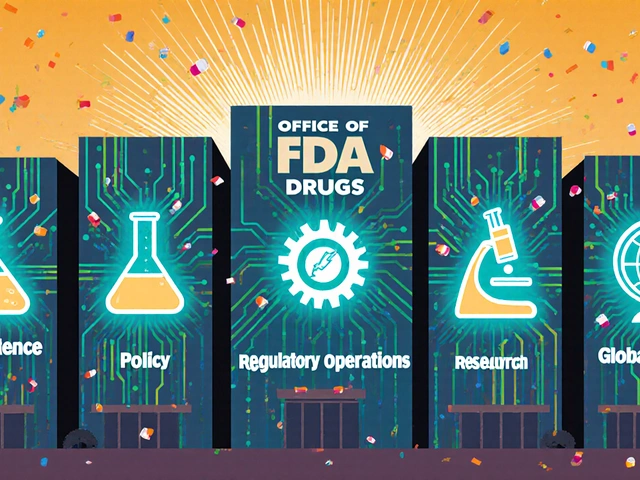
Lucinda Harrowell
19 May 2025 - 19:00 PM
It’s weird how society treats invisible illness like a personal failure. Like if you just tried harder, you’d be fine. But the truth? Your body’s just playing a different game. And the mental toll? It’s the silent second diagnosis.
ANTHONY SANCHEZ RAMOS
21 May 2025 - 14:32 PM
YES. The ‘just take vitamins’ comments? I once got a DM from a stranger telling me to ‘pray harder’ and ‘stop being negative’. Bro. I’ve been on IVIG since I was 3. My immune system doesn’t care about your affirmations. 🙃
Laura Anderson
23 May 2025 - 12:16 PM
Let’s be real-this post is just a polished version of a wellness influencer’s checklist. Real people don’t have time for ‘time blocks for worry’ when they’re juggling hospital bills, insurance denials, and a boss who thinks ‘chronic illness’ means ‘lazy’. You can’t journal your way out of a systemic failure.
maria norman
24 May 2025 - 23:02 PM
Interesting how we frame resilience as a personal discipline. But what if the problem isn’t that we’re not doing enough? What if it’s that the world refuses to make space for bodies that don’t conform? I’ve stopped trying to ‘manage’ my illness. I’m just trying to exist without apology.
Avis Gilmer-McAlexander
26 May 2025 - 00:39 AM
I love the ‘future self’ idea. Last week, I froze 12 portions of lentil soup on a good day. Today, when I couldn’t lift my head, I just heated one. Felt like a small victory. Not because I was productive-but because I remembered to care for me, even when I didn’t feel like it.
Matt Czyzewski
26 May 2025 - 11:28 AM
The biological feedback loop between stress and immune function is well-documented, but rarely contextualized within sociopolitical frameworks. The burden of constant vigilance is not merely psychological-it’s a structural violence enacted by healthcare systems that commodify wellness.
katerine rose
27 May 2025 - 16:46 PM
OMG I’m so sick of this ‘just breathe’ nonsense. I have a 3 year old who can’t go to daycare because I might die if she gets a cold. My stress isn’t a vibe. It’s survival. And no amount of yoga is gonna fix that
Chris Rowe
28 May 2025 - 08:59 AM
lol this post is like a sponsored ad for Calm app. I’ve got a 1000$ monthly bill for meds and you’re telling me to journal? My anxiety ain’t gonna fix itself with a 15 min worry block. Wake up.
Richa Shukla
30 May 2025 - 01:18 AM
they told me immunodeficiency was genetic but what if its the vaccines? what if its the 5g? what if its the water? i read a blog that said 87% of ppl with immune issues live near cell towers. im scared now
AnneMarie Carroll
30 May 2025 - 01:25 AM
You’re all missing the point. This isn’t about coping. It’s about being a burden. You think you’re brave for journaling? I’m just trying not to cry in front of my kids while I wait for my IVIG to arrive. You’re all just performative sufferers.
Selma Cey
30 May 2025 - 19:16 PM
So we’re supposed to find ‘identity outside of illness’? What if your illness is your identity? What if the only thing that makes sense in this world is the constant hum of fear and fatigue? Maybe we’re not broken for not ‘overcoming’-maybe the world is broken for expecting us to.
Fay naf
31 May 2025 - 02:02 AM
Let’s not romanticize this. ‘Tiny wins’ is just capitalist gaslighting dressed as self-care. You think a playlist helps when your insurance denies your immunoglobulin? You think ‘container tomatoes’ replace systemic access? This is performative wellness porn. Stop selling hope like it’s a product.
Jerry Erot
1 June 2025 - 16:51 PM
Actually, the Canadian study they cited? It’s flawed. The sample size was tiny and they didn’t control for socioeconomic status. Most people with primary immunodeficiency aren’t even in Canada. Also, cortisol doesn’t work that way. Endocrinology 101.
John K
2 June 2025 - 14:33 PM
Why do we even talk about this? In America, we fix things with innovation. Why not just gene edit the immune system? Why are we wasting time on journaling? We got the tech. We just need the will. #MakeImmunityGreatAgain
Joe Rahme
3 June 2025 - 02:00 AM
I’ve been on the other side-caring for someone with this. I didn’t know how to help. I thought ‘being positive’ was enough. Turns out, showing up with soup and silence meant more than any quote or prayer. Just be there. Don’t fix it. Just be there.
Iris Schaper
4 June 2025 - 23:07 PM
you know what’s wild? the fact that we have to write essays just to get people to believe we’re tired. like if i had a broken leg i’d just show the cast. but this? i gotta explain why i cant go to a birthday party. and then people say ‘but you look fine’
Sushmita S
6 June 2025 - 19:30 PM
same. i just want to go to the grocery store without feeling like a walking biohazard. i miss normal. 😭
John Schmidt
8 June 2025 - 15:24 PM
Everyone’s acting like this is new. My grandma had this in the 70s. They didn’t have apps or journaling. They just suffered quietly. Maybe we’re too soft now. Maybe we need to stop treating illness like a TED Talk.
Francis Pascoe
9 June 2025 - 16:09 PM
THIS. I’ve been called ‘dramatic’ for crying because I missed my sister’s wedding. I’ve been ghosted on dating apps after saying ‘I can’t kiss you’. I’ve been told ‘you’re lucky you have insurance’. I’m not a story. I’m not inspiration porn. I’m just trying not to die. And if you don’t get that, then maybe you’re the problem.